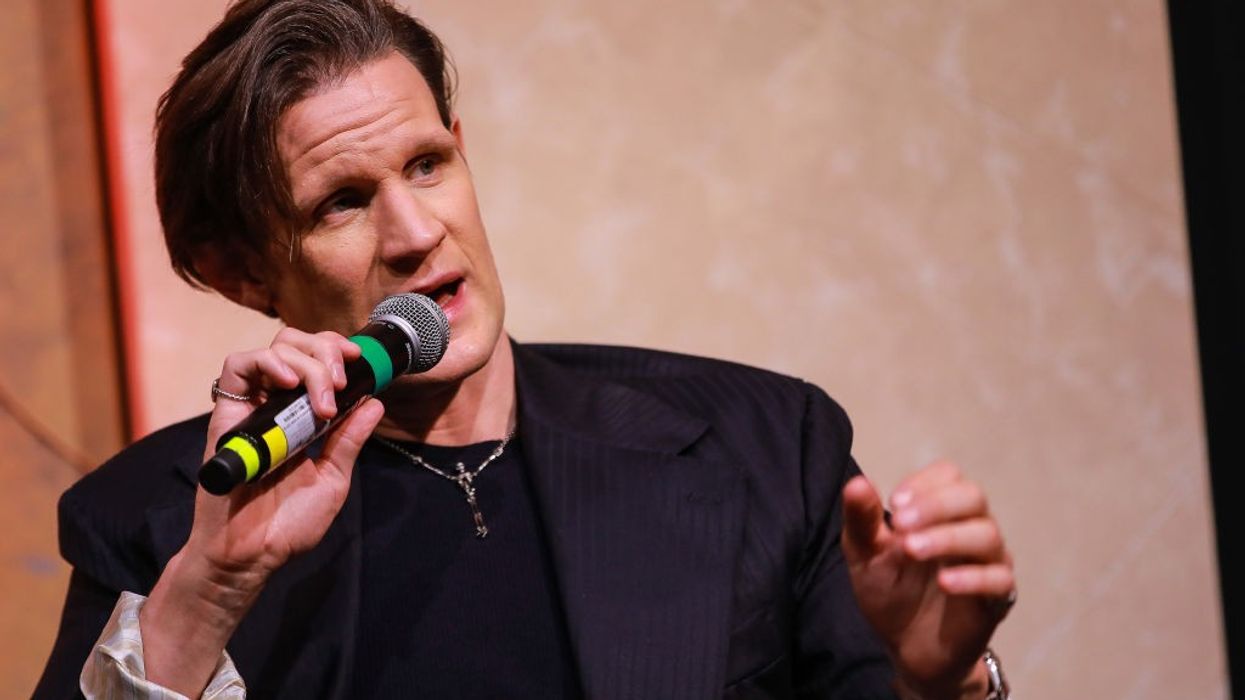They both are "blonde and mavericks" in their own way, says British star Matt Smith, who plays royalty in the upcoming fantasy drama series "House of the Dragon" after portraying Prince Philip in the acclaimed show "The Crown".
But there is a difference between Prince Philip and Daemon Targaryen; the latter is fictional as he exists in celebrated American author George R R Martin's book "Fire & Blood" which serves as the source material for "House of the Dragon".
"They're both princes, blonde and mavericks to a certain degree. Playing someone from history who is real, there's a different type of pressure that comes with that, but you've got a whole load of material.
"It's a very interesting process because once you're trying to create something that feels like them. It's not an imitation and you want to do something that feels like it's unique to you," the 39-year-old actor said in a virtual roundtable interview, also attended by PTI.
"House of the Dragon" follows the history of House Targaryen set 300 years before the events narrated in "Game of Thrones", the epic fantasy series which ended its eight-season run in 2019.
Smith plays Daemon, the heir presumptive to the Iron Throne, second in line after his older brother Viserys I Targaryen (played by Paddy Considine).
While he had a lot of source material to fall back on to prepare for both the roles, the actor said one faces a different kind of pressure when playing a real-life character like the late Prince Philip.
With Daemon again, there was a lot of source material, he added.
"Both the characters allowed for a lot of scope and have an energy of defiance about them, which is again quite similar. But, they are wonderful processes to be part of. I'm really proud I got to play Prince Philip. I thought he was a total rockstar," Smith said.
"Game of Thrones", an adaptation of Martin's book "A Song of Ice and Fire", had many fan favourite characters such as Jon Snow (Kit Harington), Arya Stark (Maisie Williams), Cersei Lannister (Lena Headey), Sansa Stark (Sophie Turner), and Tyrion Lannister (Peter Dinklage) to name a few.
According to Smith, the audiences will have to make up their mind if Daemon will be one of the people to root for.
The Emmy-nominated actor described his character as a man who is "complicated and not just one thing".
"He's quite loyal. He has a set of values he really sticks by. They're just different from other people's values. There's more to him than meets the eye and there's a degree of more sensitivity and fragility than perhaps you've seen thus far."
Daemon's complexities really the actor to the part, he said.
"At any point you never really know what he's going to think, what he's going to do, which is one of the things that as an actor I found quite attractive because it allows for a certain amount of instinct to come into play," he added.
In the trailer of the show, the audience sees King Viserys I (Considine) torn between choosing his younger brother Daemon (Smith) and his firstborn child Rhaenyra Targaryen (Emma D'Arcy) to rule the continent of Westeros, home to the Seven Kingdoms.
What also makes "House of the Dragon" something to look forward to is the dynamics between Daemon and his niece Rhaenyra, who expects to become the first queen regnant of the Seven Kingdoms.
Besides his brother King Viserys I, Smith said Daemon only has respect for Rhaenyra, with whom he converses in a secret language which is "a mixture of Latin and Arabic".
"She's his niece and there is a very deep connection within the family. His admiration, love, and mild obsession with his older brother is sort of reflected in his relationship with his niece. She's one of the few people that he treats with utter respect and reverence in the kingdom alongside his brother. Everybody else is up for grabs," he added.
Smith, who watched "Game of Thrones" when it was being aired, said, "House of the Dragon" is an original endeavour.
"'Thrones' was in the north, in the south and in the east, and there are lots of different elements to it. Whereas, this focuses on the world of Westeros and one family. Our story is slightly different. It's a more localised, focused family drama. There's a new set of brilliant actors who are going to emerge who audiences are going to fall in love with. The characters are really vivid," he added.
The actor said the world of the show would feel familiar to the parent series, but it will also feel original.
"The same deceit, backstabbing, war, love, lust, passion, rage, all of that stuff that made 'Thrones' interesting is alive in 'House of the Dragon'," he said.
Ryan Condal is attached as the showrunner on "House of the Dragon" along with Emmy winner Miguel Sapochnik, who helmed "Game of Thrones" episodes such as "The Battle of Bastards" and "The Winds of Winter".
Sapochnik has directed the pilot and additional episodes in the show.
Also starring Olivia Cooke, Steve Toussaint, Eve Best, Fabien Frankel, Sonoya Mizuno, and Rhys Ifans, "House of the Dragon" will start streaming in India on Disney+ Hotstar from August 22.
(PTI)




